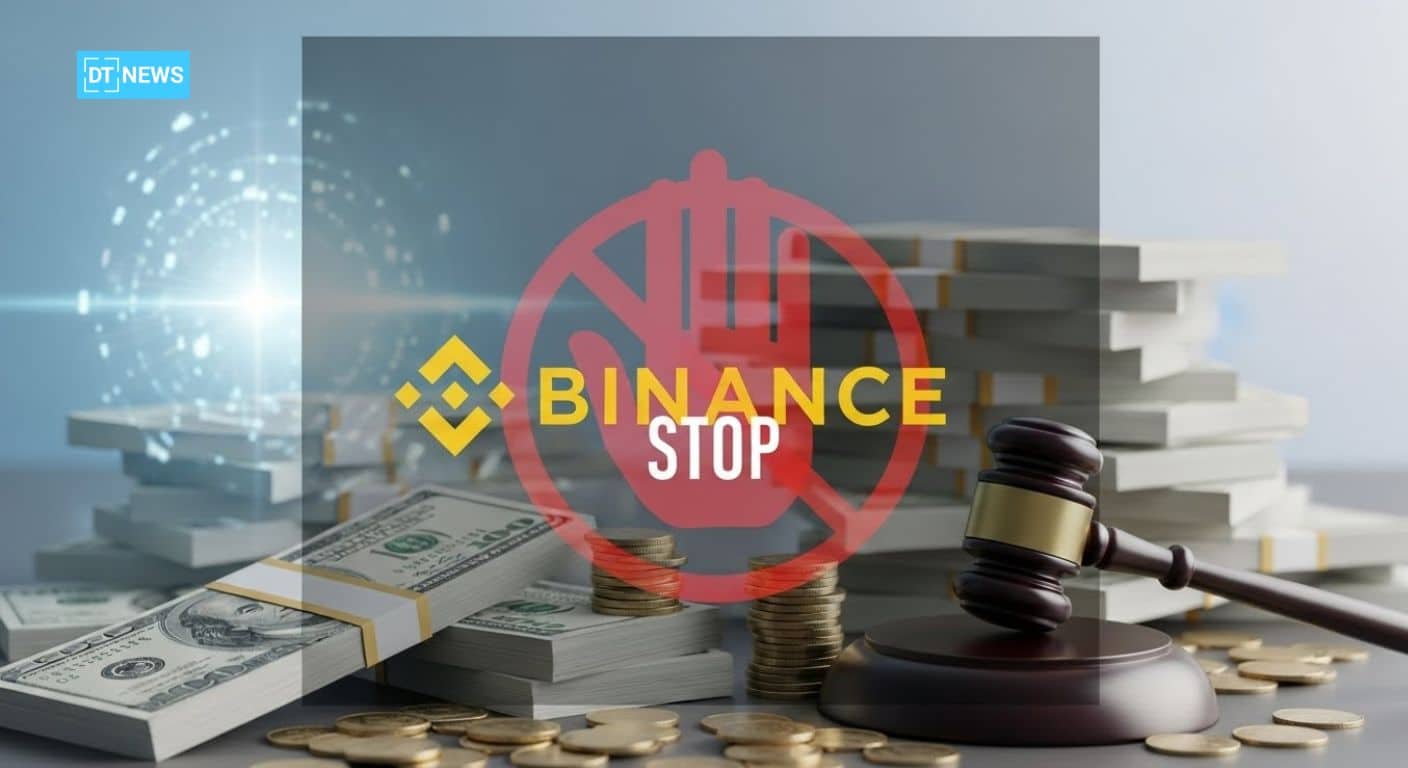This article was first published on Deythere.
- Who’s Suing And What They Allege
- What This Suit Says Beyond the Headlines
- From Past Convictions to New Accusations: What’s Changed?
- What Binance Says and What Skeptics Say in Response
- Conclusion
- Glossary
- Frequently Asked Questions About New Binance Lawsuit
- Who sued Binance, and for what?
- Which groups are named in the complaint?
- Hasn’t Binance already settled charges like these in 2023?
- What is Binance’s response to these accusations?
- What does this Binance lawsuit mean for the future of the wider crypto industry?
- References
A group of 306 victims and family members affected by the October 7, 2023, attacks has filed a civil lawsuit against Binance and its founder, Changpeng Zhao (CZ), as well as senior executive Guangying Chen.
According to the complaint, Binance acted as a behind-the-scenes financial arm that processed over $1 billion in cryptocurrency transactions for terrorist organizations such as Hamas, Hezbollah, Palestinian Islamic Jihad (PIJ), and Iran’s Islamic Revolutionary Guard Corps (IRGC).
This new lawsuit, filed in federal court in Fargo, North Dakota, under U.S. terrorism financing laws, is made even more evident by Binance’s massive 2023 settlement that included the company paying out more than $4 billion worth of fines and CEO CZ serving a four-month prison term for its shortcomings around anti-money laundering (AML).
And yet, plaintiffs contend that the exchange “deliberately designed itself as a safe haven for criminal activity” and did nothing to enact change.
Who’s Suing And What They Allege
The suit is brought on behalf of 306 plaintiffs, U.S. citizens who were killed, wounded or kidnapped in the Oct. 7 attacks, or their family members. Its complaint lists Binance, CZ, and Guangying Chen as defendants.
According to the 300-page filing, Binance has purportedly “knowingly sent and received the equivalent of over $1 billion” to wallets possessed by Hamas, Hezbollah, PIJ, as well as IRGC with over $50 million worth of transfers occurring after October 7’s attack.
One of the suspicious accounts is held by a man described as the son of a senior Hezbollah commander.

Others are said to be connected to money-exchange systems in Gaza associated with Hamas. It also traces an elaborate laundering web touching gold-smuggling paths and crypto transfers through companies in Venezuela and Brazil.
Plaintiff lawyers paint Binance as an enabler that chose profits over following the law, a “global money laundering engine” in their words.
What This Suit Says Beyond the Headlines
This breaks ground for several reasons. First, because it pushes back on the common understanding of crypto exchanges as mere neutral pipes.
The claim is that Binance was not just standing still but was actively supporting structural capacity to facilitate terror funding.
If they succeed, it creates a legal front that exchanges can be civilly liable under anti-terror laws for when their systems are exploited by groups that the U.S. government has designated as terrorist organizations.
The timing makes it hit that much harder. Binance had already suffered regulatory repercussions for past anti-money-laundering and sanctions lapses to the tune of a $4.3 billion settlement but the plaintiffs contend that the main business model remains faulty.
The scope of the supposed scheme taking place across multiple countries and involving gold-smuggling, money-exchanges and cross-border crypto flows serves as a reminder of the potential systemic risks when large exchanges take shortcuts on compliance, especially in global, high-velocity crypto markets.
“This platform became a conduit for financing murder, kidnappings, and rocket attacks, ” one attorney for the plaintiffs said.
From Past Convictions to New Accusations: What’s Changed?
In 2023, Binance and CZ was convicted of separate criminal charges related to AML and sanctions laws. The company paid more than $4 billion in fines, and CZ spent four months in prison.
But the new lawsuit alleged these penalties did little to change Binance’s practices. Despite the earlier DOJ settlement, Binance has reportedly been in the practice of actively processing accounts associated with terror groups, the complaint said.
Notably, some of the transactions said to be fraudulent occurred after the October 2023 attack, calling into question whether Binance’s internal controls and compliance reforms have been effective or simply cosmetic.
The plaintiffs contend that the new evidence reveals a pattern of misrepresentations that is “far more serious and pervasive” than what U.S. regulators discovered and publicly disclosed in 2023.

What Binance Says and What Skeptics Say in Response
In response, Binance said it “fully complies with international sanctions laws.” It declined to comment further about ongoing litigation.
Regulators have previously written that verified crypto fundraising by Hamas is in the low millions, which means many of the higher sums named in lawsuits could be inflated or misattributed.
Blockchain analytics firms echo this skepticism, saying that tracking sophisticated laundering networks, especially those with multiple hops, shell entities, and cross-jurisdictional flows, is still a puzzle, and reliable attribution to terror outfits remains sketchy.
So though the plaintiffs have put up a bold and detailed case, observers caution that it will take strong forensic and legal evidence to secure a conviction here, and that causation, meaning proving that funds directly enabled the of violence on October 7, may be difficult.
Conclusion
This new lawsuit against Binance introduces a troubled new chapter to the long-running relationship between crypto and world security.
The allegations that Binance helped terrorists process more than $1 billion in Bitcoin and other cryptocurrencies tied to the Oct. 7 attacks and others around the globe are grave and sweeping.
What will be the civil courts’ judgment against the exchange is an open question. But one thing seems certain, crypto exchanges are now being examined for what and how they might be integrated into the global financial systems, and held to the same standards of accountability and customer protections that is expected of traditional banks.
Glossary
AML (Anti-Money Laundering): Legal and regulatory policies aimed at discouraging illegal manipulation of financial systems.
Custodial Exchange: A crypto exchange that is in control of users’ funds, making the platform (not the user) have access to private keys.
Financing of Terror: Provision of money to support terrorist plans or contribute to execution thereof.
Civil Case: Legal proceeding in which one party sues another for a remedy other than criminal prosecution .
Foreign Terrorist Organization (FTO): A group the government has determined is involved in terrorism and is subject to sanctions.
Frequently Asked Questions About New Binance Lawsuit
Who sued Binance, and for what?
Families of the American victims and others killed, injured or taken hostage in the October 7, 2023 attacks filed suit. They claim Binance helped facilitate more than $1 billion in crypto transactions for terrorist organizations.
Which groups are named in the complaint?
The suit accuses US designated terror groups Hamas; Hezbollah, Palestinian Islamic Jihad (PIJ) and Iran’s Islamic Revolutionary Guard Corps (IRGC).
Hasn’t Binance already settled charges like these in 2023?
In 2023, Binance and its founder confessed to AML and sanction breach and were fined for $4 billion; CZ was in jail for four months. The defendants emphasize that, but say below-market business practices persist.
What is Binance’s response to these accusations?
Binance said it was in compliance with sanctions enforcement rules worldwide, but refused to comment on specifics due to the ongoing litigation.
What does this Binance lawsuit mean for the future of the wider crypto industry?
Should plaintiffs win, centralized exchanges may come under even greater civil and regulatory liability. That has the potential to make for even more stringent compliance regimes, broader KYC and AML enforcement, and more demand for non-custodial or decentralized solutions.


















































































































